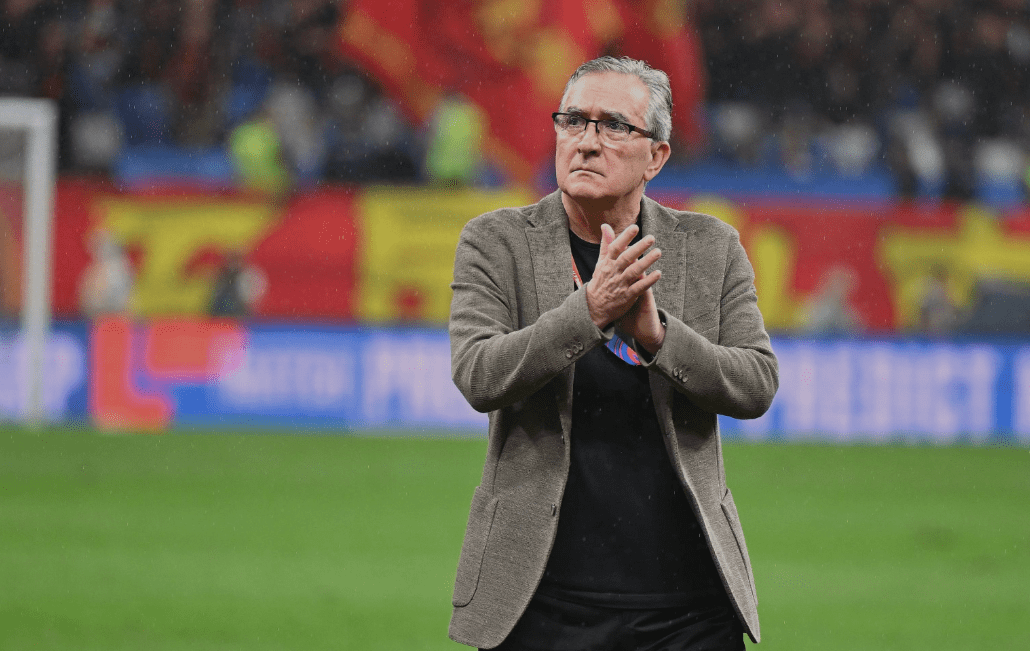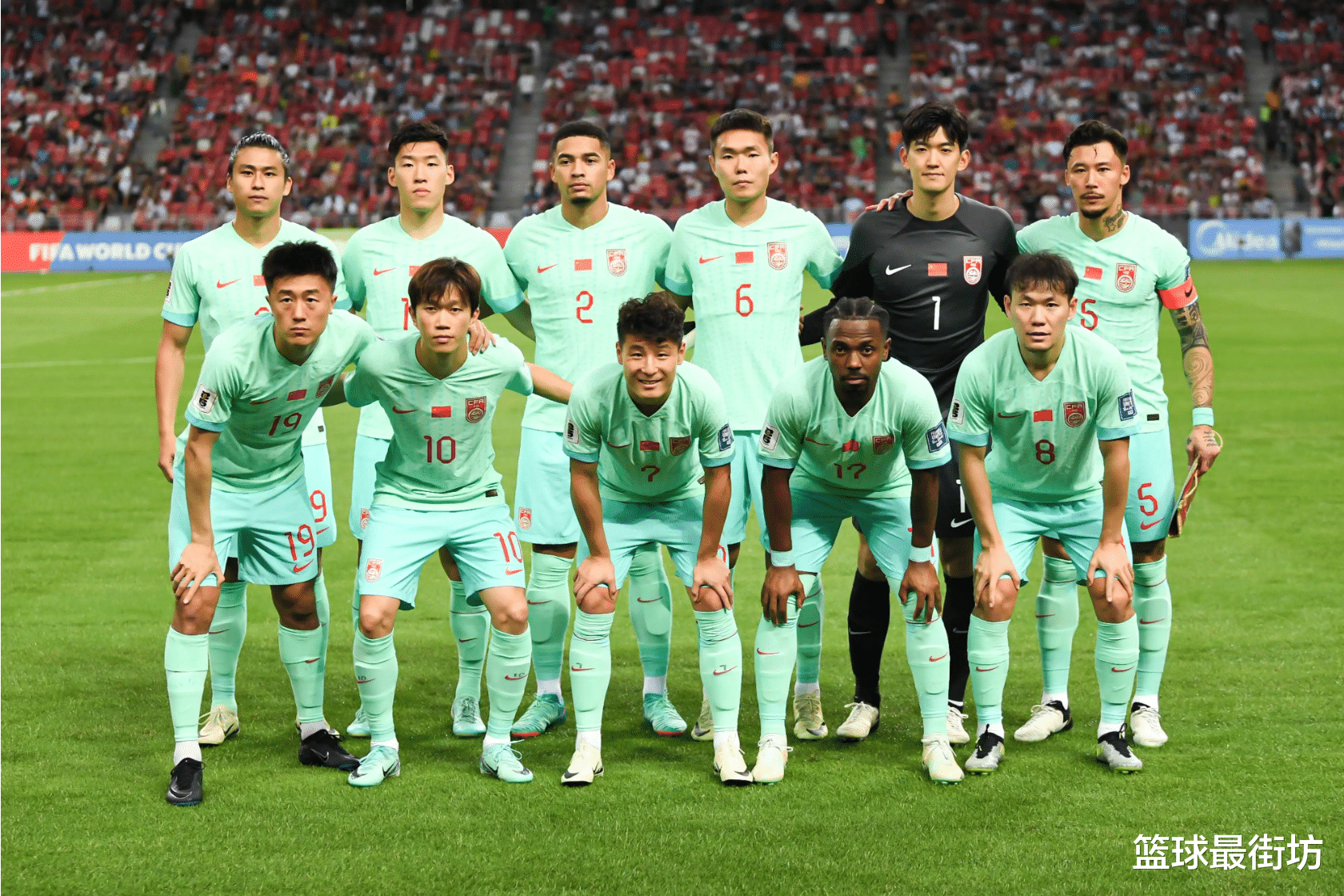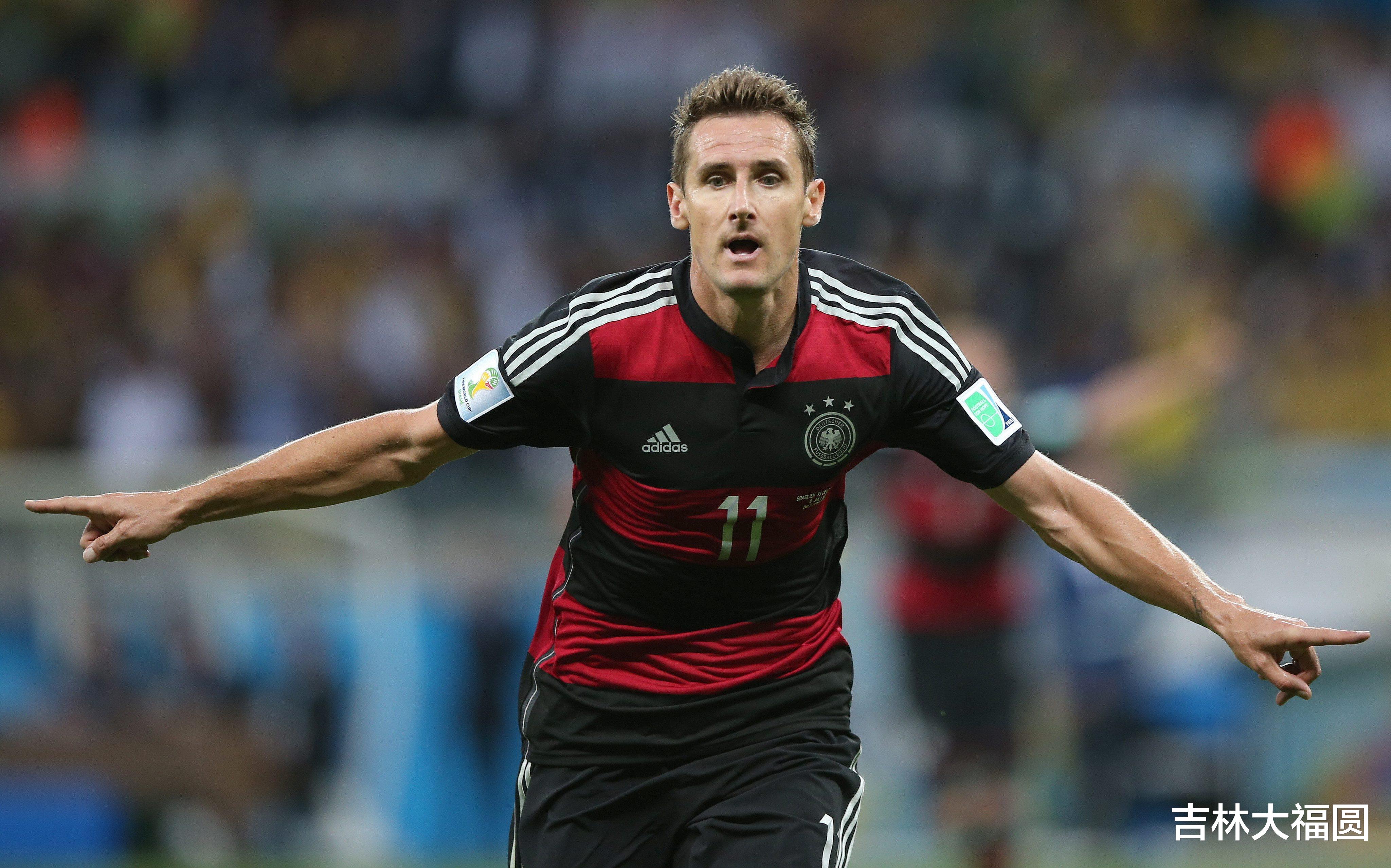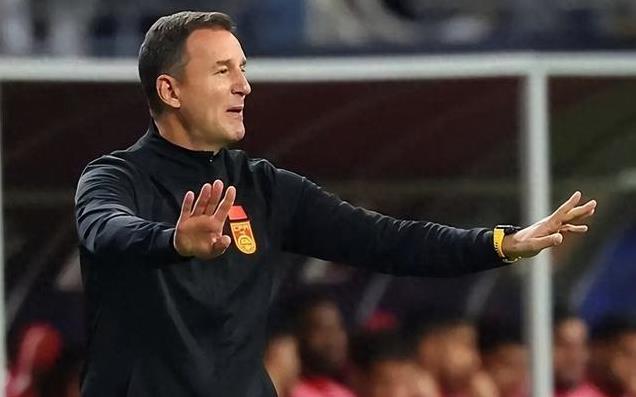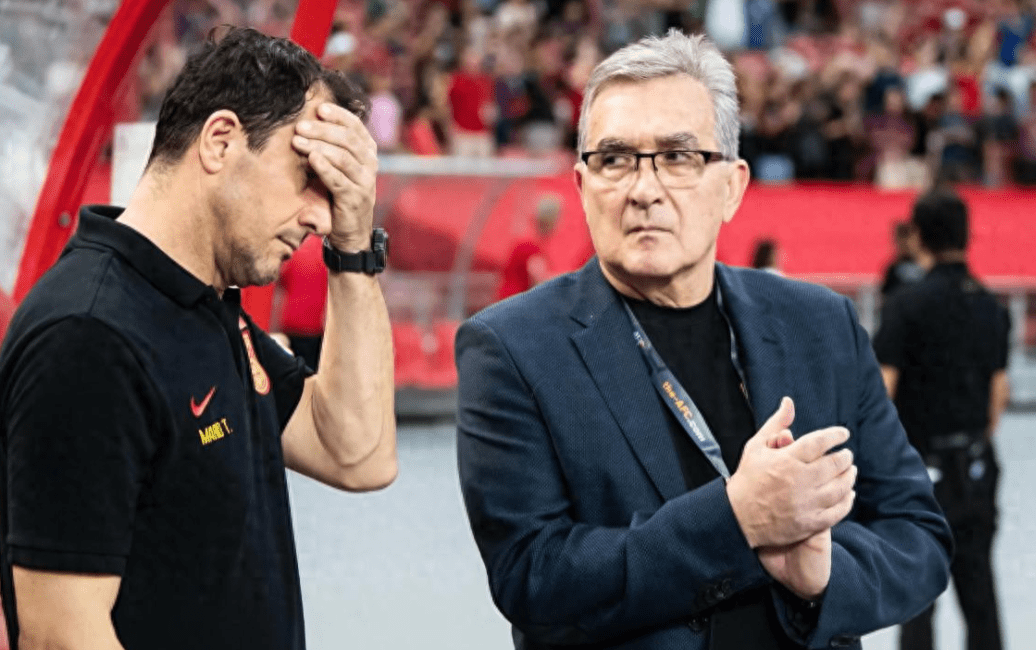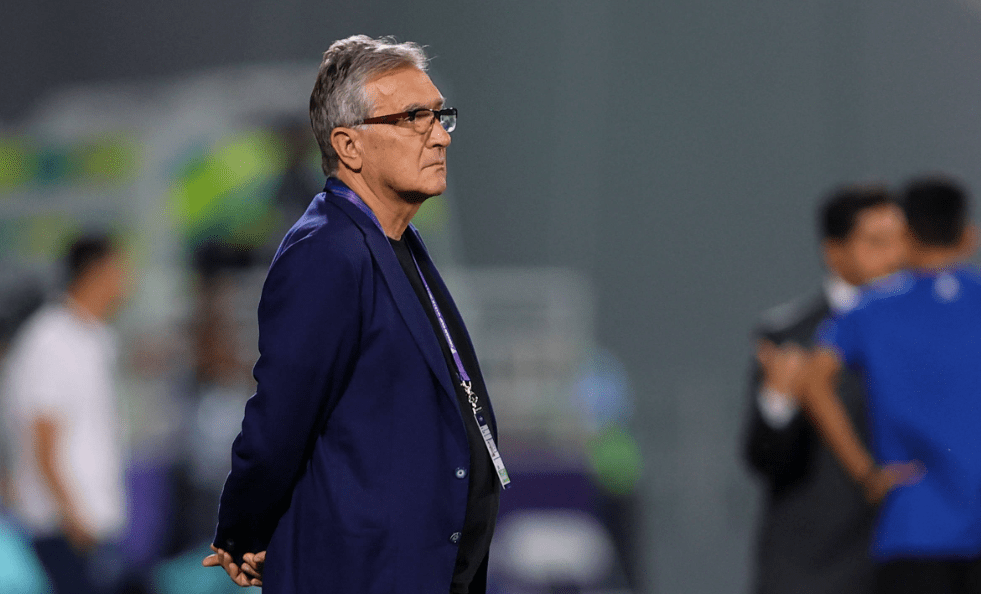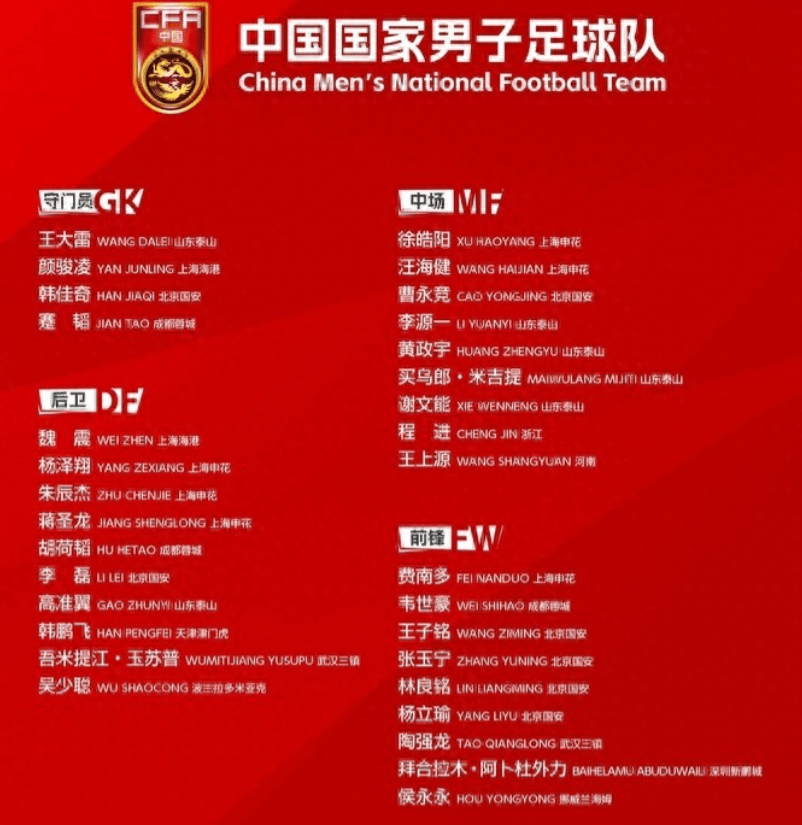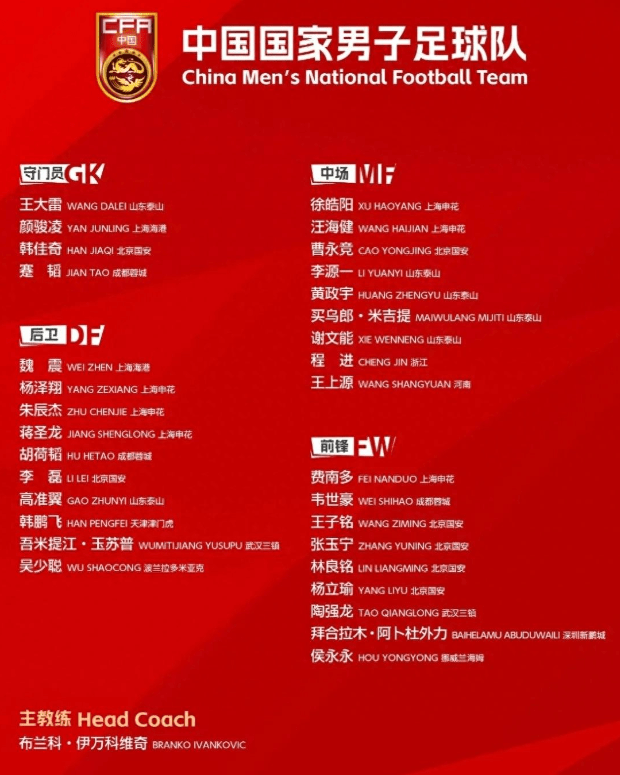China's national football team is facing a crucial moment in their World Cup qualifying campaign, with matches against Saudi Arabia and Australia being seen as key tests for their chances of reaching the tournament. The question arises: can the addition of several newly naturalized players, along with tactical adjustments, truly change the team's decades-long struggle? During recent training sessions, three names have stood out: Hou Yongyong, Oscar, and Serginho. These naturalized players are viewed by many as a turning point for the team's strength, but it's important to remember that the concept of "naturalization" itself is controversial. Hou Yongyong, the first naturalized player in Chinese football history, has been a topic of discussion since his return from Norway. Some see him as the future of Chinese football, while others view naturalization as a short-term solution that doesn't address underlying issues. Despite the debate, Hou Yongyong has brought changes to the front line with his speed and flexibility, adding depth to the team's attacking play. He now occupies a key position on the front line, forming a partnership with Zhang Yuning that combines speed and power. Fans eagerly await to see if he can withstand the pressure and silence his critics during the match against Saudi Arabia. Oscar, known for his time at Chelsea and now playing in the Chinese Super League, is another focal point. His precise through balls and high-level vision have made him a model for midfielders. After naturalization, he is seen as the engine of the national team's midfield, although relying solely on him may be overly…
China's National Team to Face Saudi Arabia in Key World Cup Qualifier, Wu Lei Set to Return, $150 Million Naturalization Plan Fails
With the gentle spring breeze of March sweeping across the land, the eyes of football fans across the nation are fixed on a pivotal match in the World Cup qualifiers—China's national team is set to face the formidable Saudi Arabian squad. This highly anticipated game not only concerns the honor of both nations' football but also carries the hopes and dreams of countless Chinese fans for the World Cup. CCTV5 Sports Channel will provide live coverage of this crucial encounter, allowing viewers nationwide to witness every thrilling moment of this football feast! For China's national team, the significance of this match is self-evident. As an integral part of the World Cup qualifiers, each victory is crucial for the team's advancement to the next stage. Facing the strong Saudi Arabian side, the Chinese players know that only by giving their all can they secure victory in this tough battle. In this match, the player drawing significant attention is undoubtedly Wu Lei, one of the leading figures in Chinese football. His experience with the Spanish club has made him more mature and stable. Despite recent injury setbacks, reliable sources indicate that Wu Lei's return is imminent. His comeback is sure to bolster China's frontline with formidable attacking power, providing a strong support for the team's quest for victory. However, just before the match, there came disappointing news. The naturalized player Fernando, who was highly anticipated, has been confirmed to be unavailable for this game. It is reported that Fernando has returned to Brazil due to personal reasons and will not represent China…
National Football Team Just Blows Winter Training Assembly! One After Another National Players Apply to Leave the Team? Ivan Has Approved
Recently, a series of withdrawal incidents has once again made Chinese football the focus of public opinion. From the national team captain Wu Xi's voluntary application for withdrawal, to the departure of naturalized players Alan and Fernandinho, and then to Zhang Linpeng's "withdrawal incident", many fans began to ask: "What's wrong with Chinese football? Are the national players unable to see hope, or is there another hidden situation?" Withdrawal is an individual choice, but when a group of players withdraw from the national team one after another, things become intriguing. Is this a coincidence, or are there problems with the management and environment of the national team? What is even more disturbing is that in the face of these withdrawals, the attitude of the national team coach Ivan Kozlovic seems surprisingly "calm," with almost no intention of retaining them, and even with a hint of "closing the door and leaving." Behind this cold treatment, is it absolute confidence, or is it going with the flow out of helplessness? To understand what's behind this, we have to start with a few things. First, let's talk about Wu Xi. As the captain of the national team, his withdrawal application is undoubtedly the most shocking. According to Wu Xi's own statement, he withdrew because of "insufficient ability" and did not want to drag down the national team. However, as a veteran who has been playing in the top league of Chinese football for many years and a midfielder who was once highly regarded, how could he suddenly doubt his ability? This sounds like…
The management of naturalized players has always been a great test for managers. After all, these players have no blood ties with the country they are naturalized in. Talking about a sense of identity or patriotic enthusiasm is simply nonsense. For most naturalized players, the big stage of the World Cup is their primary need. Their market value and appearance fees are what really matter. It is rumored that some naturalized players on the Chinese national team have lost their temper. In fact, except for Jiang Guangtai, the performance of other naturalized players has been quite average. Luo Guofu, Ai Kesen, Alan, and Fernandinho - it doesn't make much difference whether they are there or not. So why bother naturalizing them? What saddens Chinese football the most is Li Ke. In January 2024, Ivan invited Li Ke to join the national team roster. However, this person directly rejected the call of the national team. If Li Ke were a native-born Chinese, would he dare to do so? The reason Li Ke rejected the call of the national team is said to be because of a grudge. In an interview with reporters, he justified himself, "After returning from winter training, I fully prepared for the national team. Throughout the Asian Cup period, the then head coach of the Chinese Football Association, Yangkovic, benched me. This experience was very unpleasant!" Is it just because of the decision made by the former head coach that this person holds a deep grudge against the Chinese national team? Even though the head coach has changed,…
China's National Football Team to Add Another Naturalized Player! 29-Year-Old Brazilian Star Appears in Beijing, Meeting with Ivan
In the Asian qualifying round of the World Cup for the United States, Canada, and Mexico, the performance of the Chinese men's football team has undoubtedly sparked heated discussions and attention from all sides. Although their current performance is not satisfactory, it seems that Chinese football still has a glimmer of hope. In this globally watched event, despite suffering a crushing defeat at the hands of the Japanese men's football team in the first round, as the competition progresses, the state of the national team has begun to gradually recover, bringing some expectations to the fans. At this critical moment, news about naturalized players has once again become a hot topic, especially the issue of naturalizing Brazilian player Serginho, which has aroused extensive discussion among fans. In fact, whether the future of the national team can achieve a qualitative leap through the addition of naturalized players has become an issue that many people are keen to discuss. Regarding the current situation of the Chinese men's football team, we must first acknowledge that although the current ranking is low, the national team still has the potential to make a run for the World Cup. Currently, the Chinese men's football team has a record of 2 wins and 4 losses, accumulating 6 points, temporarily at the bottom of Group C, only 1 point behind the second-placed Australian men's football team. From this point of view, although the results are not ideal, opportunities still exist, especially on this road to the World Cup, any victory and accumulation of points may allow them to…
More Bold Than Lippi! Ivan recruits 8 newcomers in one breath, and the boldness of delisting one person from the national team
"Is there hope for this national football team?" When the new list of the national football team's training camp was released, everyone couldn't help but ask this question. Reform is a "standard action" for every coach after taking office; but this time, the large-scale adjustment of the 32-man list plus the first selection of naturalized players has made the news about the national team heat up faster than the heating in winter. On one side, veterans are being abandoned, and newcomers occupy more than half of the territory; on the other side, young goalkeepers are emerging, and naturalized player Hou Yongyong's appearance as the biggest highlight. Is this reform a new hope that is about to burst forth, or is it a high-risk "gamble"? As an onlooker, we may not be able to come up with an answer immediately, but seeing through the intentions behind it is still crucial. Looking at this carefully selected list of 32 people, there is a particularly eye-catching number: an average age of 26.7 years old. Compared to previous lists exceeding 28 years old, this training team is indeed much younger. Among them, there are also 11 post-00s youngsters selected, which means that "renewal and replacement" is not just talk, but real action has been taken. Younger has always been a hot word in recent years of national football reform, but truly implementing it involves no less maneuvering than on the field. Veterans do have match experience, but young people's speed, physical fitness, and combat effectiveness are unmatched by veterans. Coach Ivanovic seems to understand…
Whoever is missing feels awkward, after the announcement of the national football team's roster, these twelve players will bid farewell to the national team forever
"Whoever is missing feels awkward, after the announcement of the national football team's roster, these twelve players will bid farewell to the national team forever" The new training list of the Chinese men's national football team has sparked heated discussions online. Familiar names such as Wu Lei, Zhang Linpeng, and Hao Junmin are no longer on the list. Instead, three newcomers have been selected: Hou Yongyong, Wumiti Jiang, and Maiwulang. This script of generational change is either a hopeful transformation or another inconclusive attempt. National team coach Ivankovic has signaled that the national team needs to be younger and more local, turning over a new leaf. However, what everyone cares about most is whether such changes will be effective. Is youthification an opportunity for drastic change or just an excuse to give up completely? Speaking of the national team, one cannot avoid the "golden generation." Going back to the 2018 Russia World Cup qualifiers, that team was seen by many as the "most promising" national team. At that time, Wu Lei, Zhang Linpeng, Wu Xi, and Hao Junmin formed the core lineup of the team. Especially Wu Lei, known as the "No. 1 forward in Asia," was the greatest pride of Chinese football fans. In the game, he repeatedly dribbled the ball forward and scored goals, becoming the symbol of China's offensive play. Unfortunately, despite their desperate efforts, they ultimately failed in the qualifying stage. It wasn't that they didn't try hard enough, but rather that their technical abilities and systemic weaknesses were too obvious. The outside world saw that…
Whoever is missing feels awkward! After the national football team announces a new list of 32 players, these 10 players will retire from the national team
Can youth rejuvenation save the national football team? The latest 32-man roster for the national football team has just been announced, sparking heated discussions among fans. This list breaks with the past tradition of "veterans in charge," with a full 10 veterans missing from the national team; on the other hand, it boldly employs 8 new faces who have never been selected for the national team before, causing many to exclaim, "The national team is getting serious this time." However, can such a gamble on youth really turn things around for the national team in the upcoming top 18 matches? Is it bold innovation or just leaving things to fate again? This roster reform, put bluntly, is the national team taking a gamble - betting that youth can bring vitality while having to face the risk of inexperience. The addition of 8 newly selected players gives this list a lot of "strangeness." It's clear to everyone that although these players lack experience in major international competitions, they are undoubtedly standouts in domestic leagues. Take Jian Tao as an example; this goalkeeper has been called a "penalty-saving expert" in the league over the past two seasons, striking fear into opposing forwards. Another example is Wu Shaocong, who at 22 years old relies on his agile footwork and tenacious tackling to become the most stable link in the defensive line. With their selection, people finally see a glimmer of hope: young players can also carry the flag and prove that they are not just "show-offs." What is most noteworthy, however, is the…
Goodbye! The first person to withdraw from the national football team is born, the 35-year-old striker leaves the team, refuses to be called up, and misses the World Cup qualifiers
The recent football scene has been bustling with excitement, yet tinged with a hint of awkwardness: Alan, once a highly anticipated naturalized player, at the age of 35, has proactively "thrown in the towel" for the national team. Not only did he fail to make the latest national team training squad, but he will also miss the upcoming World Cup qualifiers. Upon the release of this news, fans were in an uproar; some felt sorry, others were angry, and there were those who questioned whether the investment in naturalized players was worth it. Behind this incident, is it a special personal choice by Alan, or does it reflect issues with our naturalization policy itself? To understand Alan's "departure" journey, we must start with his early performance. This Brazilian-born player was introduced by the Chinese Football Association as a naturalized player in 2019 and was one of the top stars at the time. With superior physical conditions and delicate footwork, he was expected to help the national team address its weak frontline. Indeed, he had shown certain capabilities and contributed many crucial goals for the national team. However, in recent years, Alan's attitude has taken a sharp turn for the worse. From previously responding positively, to later citing physical fitness issues to reject call-ups, and even not returning to China after the end of the CSL season, it seems that his dedication is not very "deep." When the team needed him for matches, he was abroad recuperating, and this time, when the national team knocked on his door again, he simply…
Two National Team Players Close to Joining Guoan, Naturalized Strong Aid Self-Announcement, Becoming a Major Player with 10 People; Harbor Cool
Can Chinese football turn things around? The new national team roster has given us a glimmer of hope, but it also makes us hold our breath. Will the seemingly positive changes such as youthification, naturalized players, and contributions and adjustments from clubs really shake the deeply rooted problems in Chinese football? Looking beyond the excitement on paper, is the future of Chinese football really here? The name of Ivanković has been frequently mentioned in the domestic football circle recently. After taking office as the head coach of the national team, he launched a radical reform, the most obvious action being the promotion of team youthification. This time, the average age of the newly announced national team list dropped to 26.7 years old, much younger than the previous "35+ veterans class." At first glance, this is indeed a positive signal. In the past, we always said that when the national team played, the average age of the players was high enough to be like playing a retirement ceremony. But this time, many post-95s and even post-00s young players have been promoted to the national team. They have good physical fitness and strong impact, and can keep up with the fast-paced international competitions. But then again, youthification does not equal achievement. Young people have energy, but lack experience in major events, which may become a shortcoming in events like the Asian Cup. Imagine, when the opponent presents a mature tactical system and experienced players, can these young players stabilize their positions? Ivan's youth strategy is a gamble, and the results may not…
